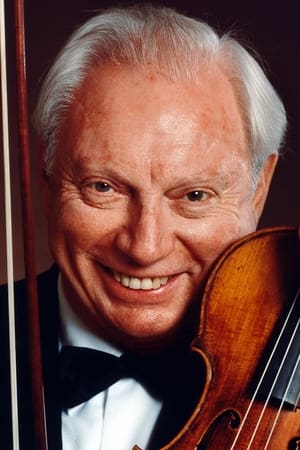Isaac Stern (1920-2001)
Birthplace:
Kremenets/Krzemieniec, Ukrainian People's Republic [now Kremenets, Ternopil Oblast, Ukraine]
Born:
July 21, 1920
Died:
September 22, 2001
Isaac Stern (July 21, 1920 – September 22, 2001) was an American violinist. Born in Poland, Stern came to the US when he was 14 months old. Stern performed both nationally and internationally, notably touring the Soviet Union and China, and performing extensively in Israel, a country to which he had close ties since shortly after its founding. Stern received extensive recognition for his work, including winning the Presidential Medal of Freedom and six Grammy Awards, and being named to the French Legion of Honour. The Isaac Stern Auditorium at Carnegie Hall bears his name, due to his role in saving the venue from demolition in the 1960s. The son of Solomon and Clara Stern, Isaac Stern was born in Kremenets, Poland (now Ukraine), into a Jewish family. He was 14 months old when his family moved to San Francisco in 1921. He received his first music lessons from his mother. In 1928, he enrolled at the San Francisco Conservatory of Music, where he studied until 1931 before going on to study privately with Louis Persinger. He returned to the San Francisco Conservatory to study for five years with Naoum Blinder, to whom he said he owed the most. At his public début on February 18, 1936, aged 15, he played Saint-Saëns' Violin Concerto No. 3 in B minor with the San Francisco Symphony under the direction of Pierre Monteux. Reflecting on his background, Stern once memorably quipped that cultural exchanges between the U.S. and Soviet Russia were simple affairs: "They send us their Jews from Odessa, and we send them our Jews from Odessa." During World War II, Stern was rejected from military service due to flat feet. He then joined the United Service Organizations and performed for US troops. During one such performance on Guadalcanal, a Japanese soldier, mesmerized by his playing, sneaked into the audience of US personnel listening to his performance before sneaking back out. Stern toured the Soviet Union in 1951, the first American violinist to do so. In 1967, Stern stated his refusal to return to the USSR until the Soviet regime allowed artists to enter and leave the country freely. His only visit to Germany was in 1999, for a series of master classes, but he never performed publicly in Germany. Stern was married three times. His first marriage, in 1948 to ballerina Nora Kaye, ended in divorce after 18 months, but the two of them remained friends. On August 17, 1951, he married Vera Lindenblit (1927–2015). They had three children together, including conductors Michael and David Stern. Their marriage ended in divorce in 1994 after 43 years. In 1996, Stern married his third wife, Linda Reynolds. His third wife, his three children, and his five grandchildren survived him. Stern died September 22, 2001 of heart failure in a Manhattan, New York, hospital after an extended stay. In 1940, Stern began performing with Russian-born pianist Alexander Zakin, collaborating until 1977. Within musical circles, Stern became renowned both for his recordings and for championing certain younger players. Among his discoveries were cellists Yo-Yo Ma and Jian Wang, and violinists Itzhak Perlman and Pinchas Zukerman. ... Source: Article "Isaac Stern" from Wikipedia in English, licensed under CC-BY-SA 3.0.





